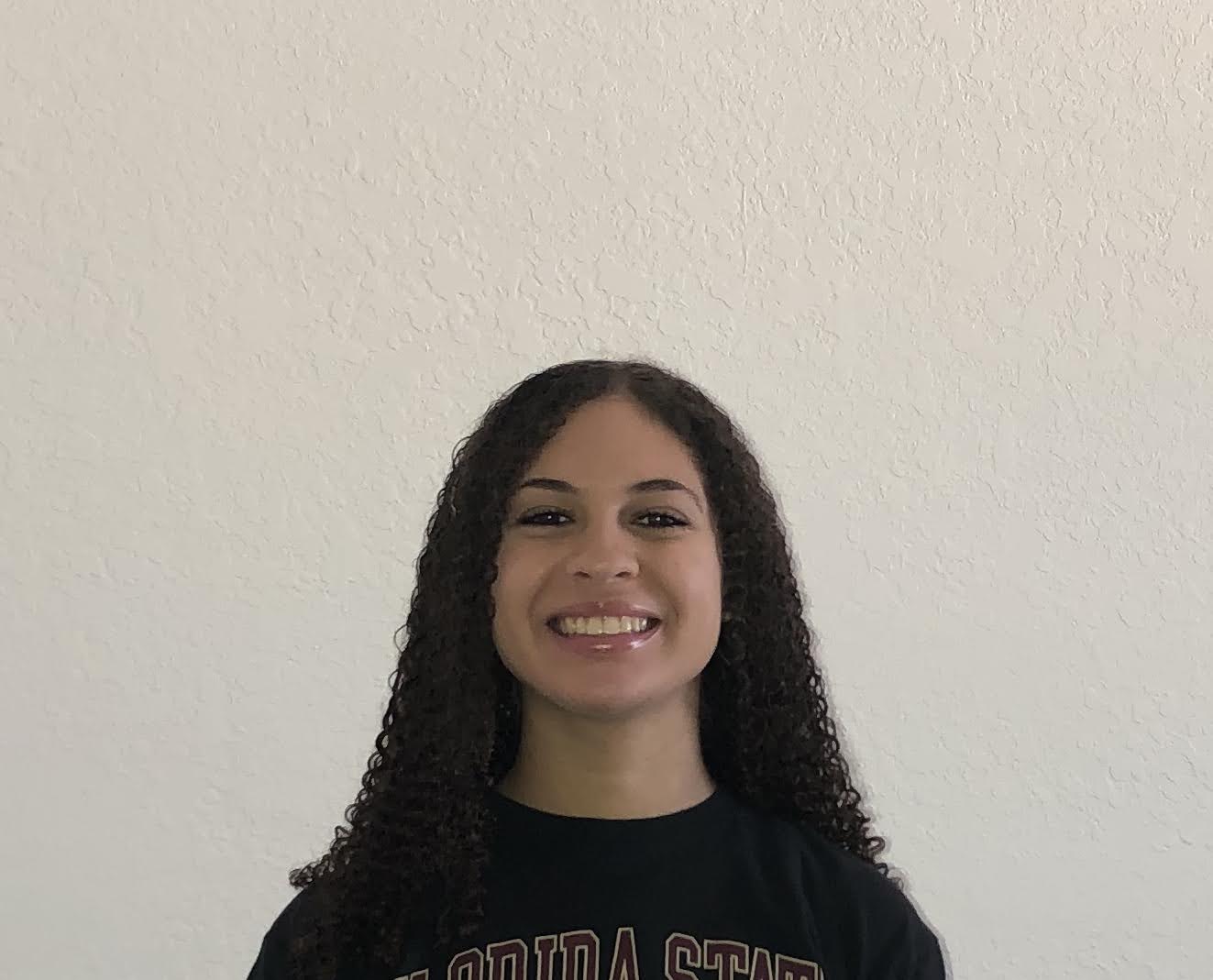Research Symposium
22nd annual Undergraduate Research Symposium
Ashley Bishop Poster Session 3: 11:00- 11:45/Poster #2

BIO
Ashley Bishop is a second-year student at Florida State University's College of Arts and Sciences, where she is pursuing a degree in Cell and Molecular Neuroscience (BS) and a minor in Chemistry. She is from Palm Beach County, Florida and is interested in neuroscience research specifically in nervous system disorders, such as Parkinson's Disease and Post Traumatic Stress Disorder. Upon completion of undergraduate studies, she intends to apply to medical school to further her knowledge of medicine and progress toward a career as a surgeon.
Prosodic Contributions to Intelligibility in Dysarthria
Authors: Ashley Bishop, Micah E. HirschStudent Major: Cell and Molecular Neuroscience
Mentor: Micah E. Hirsch
Mentor's Department: School of Communication Science and Disorders Mentor's College: College of Communication and Information Co-Presenters: Meredith Strickland
Abstract
Dysarthria is a neurologic speech disorder that affects the accuracy, speed, and strength of the movement required for speech production. As a result of these speech deficits, speech intelligibility, or how well one is understood, is nearly always impaired in speakers with dysarthria. Many factors contribute to speech intelligibility, including prosodic features such as articulation rate, pitch variation, and intensity variation. This study evaluates the relationship between prosodic features and intelligibility in speakers with dysarthria. Previously recorded readings of the Grandfather Passage from 20 speakers with dysarthria were used in this study. Additionally, seventy naive listeners were recruited to provide two measures of speech intelligibility: (1) orthographic transcriptions and (2) visual analog scale (VAS) ratings of intelligibility. Prosodic measures, including articulation rate, pitch variation, and intensity variation, were measured from the speech samples. Multiple linear regression will be used to investigate the predictive relationship between prosodic features of speech with speech intelligibility in speakers with dysarthria. The models will examine both the relationship of these prosodic measures with OT scores and VAS ratings of intelligibility. The findings will provide a deeper understanding of how prosodic features predict speech intelligibility in speakers with dysarthria.
Keywords: Dysarthria, Speech Intelligibility, Prosody
